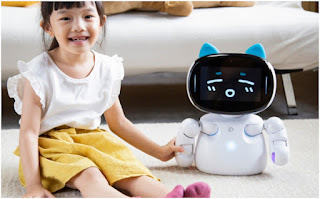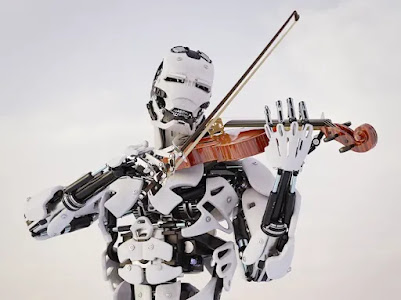AI toys and the impact on children
Nowadays, with the rapid development of technology, toys involving technology are increasingly popular and will become even more popular in the future. In fact, in this article, according to a report by Grand View Research, the global smart toys market size is expected to reach 34.13 billion USD by 2028. The more popular AI toys are, the more concerns they raise. Even though AI toys bring positive benefits to children, there are significant concerns about the impact of AI toys on children. In this blog, I will discuss the benefits of AI toys and its impact on children.
According to the article “Are AI toys ethical?” by Olivia Tambini, an AI toy is a toy which can “learn, adjust the way it interacts with the user, react to external stimuli and behave according to pre-programmed patterns”. Some intelligent features of AI toys may include using voice recognition or touch sensors. According to the article, the exposure to AI toys is beneficial to children as it prepares children for their future education and career. In addition, in the article “Why Smart Toys are Good for Kids”, Anna Prist also points out that playing with smart toys allows children to develop perception, reasoning and imagination.
Although AI toys are being increasingly developed by manufacturers, an official quality standard of AI devices has not existed yet. Hence, it is reasonable to be concerned about the safety of AI toys. In her article, Olivia Tambini indicates that AI toys could be a threat to users’ privacy as it is easy for the home’s WIFI network, intimate conversations or any other personal data to be hacked through AI toys. I believe that as long as a policy for AI toys’ safety has not been developed, children’s privacy is at risk. It is likely that children’s data is being collected without their parents’ awareness. Hence, children are having less protection that they should have.
The concerns about AI toys do not limit with the safety issues but also the development of children. The article “Are AI toys ethical?” introduces an experiment about robots and children. The result of the experiment shows that children are more likely to be influenced by robots than adults. This leads to a concern about the ethics of giving kids the access to AI toys. Moreover, I believe AI toys could be a threat to children as it is hard to control what AI toys teach the children to do. To be clear, without a standard for the quality of AI toys, the algorithms coded for those toys may not have been not suitable for kids. For example, AI toys could discuss topics like racism violence. If the children are exposed to these topics regularly, it is clearly not good for their childhood.
In conclusion, nowadays, the exposure of children to AI toys is significantly increasing. In the age of the internet, it is beneficial for children to access AI toys easily as they could develop essential skills for their future education or career. However, as mentioned in the above articles, AI toys raise many concerns about the safety and development of children. Specifically, children’s data could be hacked through AI toys, hence, children’s privacy could be at risk. It could become even worse as the parents are not aware that their children’s privacy is being taken. In addition, children might be exposed to unsuitable contents from AI toys, which will negatively affect their development. Therefore, I believe that there should be an official standard for AI toys to minimize the negative impact on children. Moreover, the parents should take the most significant responsibilities of their children, hence, they should be aware of the advantages as well as disadvantages of AI toys and consider carefully before giving any AI toys to their children.


